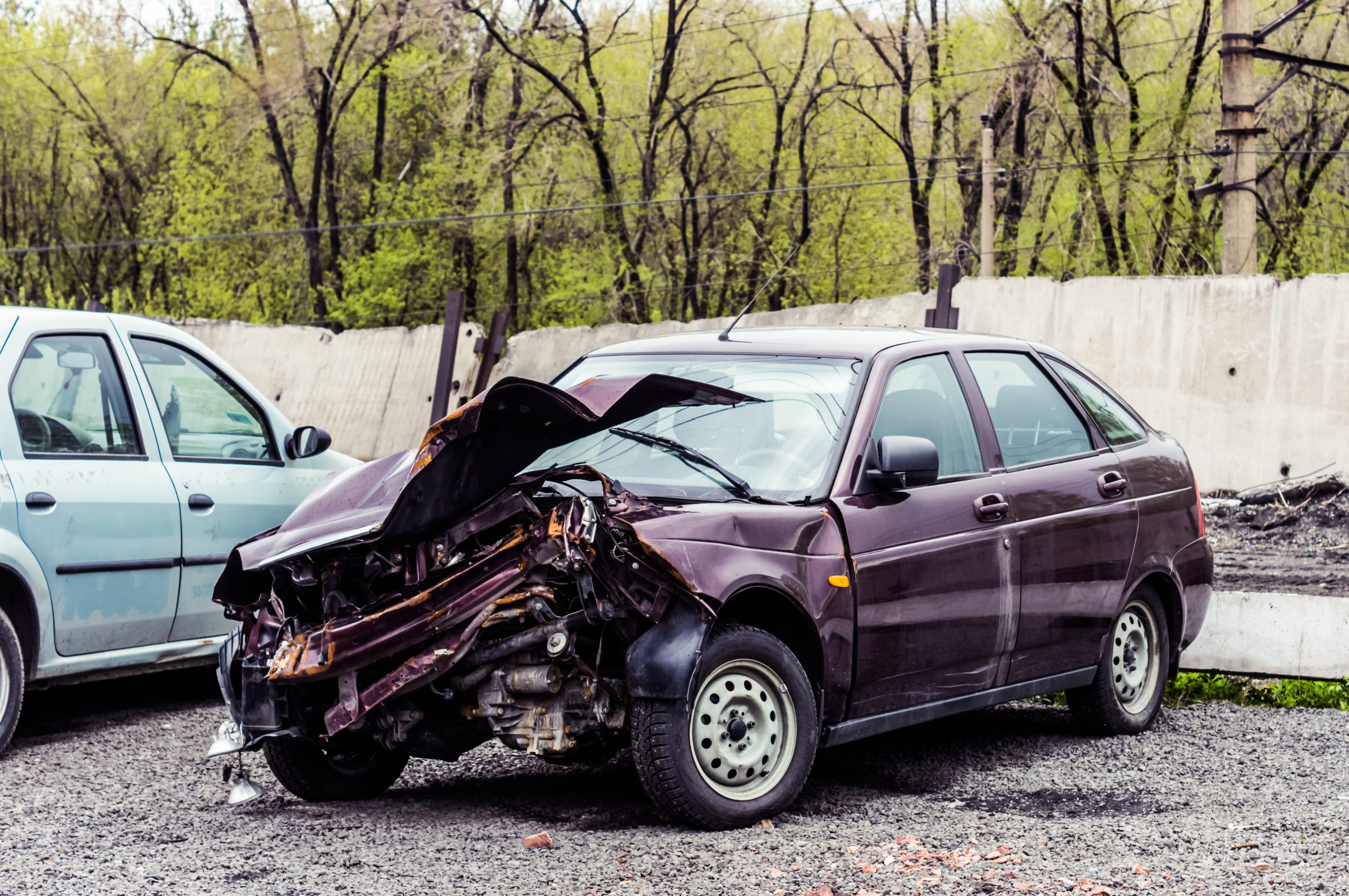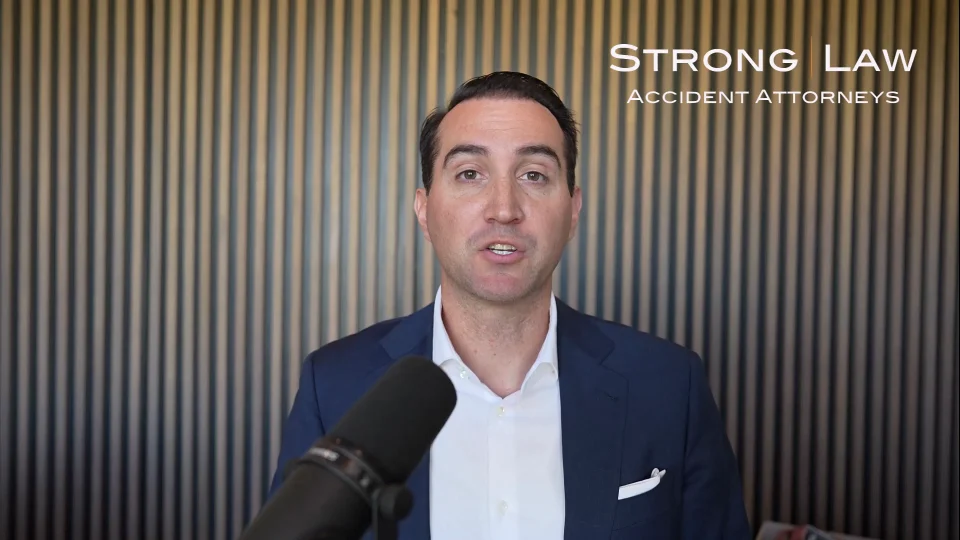What Are the Basics of an Auto Accident Claim Process?

Auto accidents are an unfortunate reality on the road, and understanding how to navigate the claims process can help you recover financially and emotionally after a collision. The steps following an accident can be complex and often overwhelming, but having a clear understanding of the auto accident claim process can help streamline it and ensure your rights are protected. Here, we provide a detailed breakdown of the process, covering essential steps, required documentation, and valuable tips to maximize your claim’s success.
Jed Strong Explains the Basics of the Auto Accident Claims Process
Understanding the Role of Insurance in Auto Accident Claims
When an accident occurs, one of the first actions you should take is to contact your insurance provider. Insurance policies vary widely, but most cover specific damages such as medical expenses, car repairs, and property damage. Your policy type will significantly impact the claim process, as it determines what is covered and how much you might receive.
Types of Coverage
There are various types of auto insurance coverage you should be aware of, as each plays a distinct role in the claims process:
- Liability Coverage: Covers damages to other parties involved if you are found at fault.
- Collision Coverage: Pays for damage to your vehicle, regardless of fault.
- Comprehensive Coverage: Covers non-collision related damage, such as theft or natural disasters.
- Personal Injury Protection (PIP): Covers medical expenses for you and your passengers.
- Uninsured/Underinsured Motorist Coverage: Offers protection if the other driver has insufficient insurance.
Understanding your coverage and the type of claim you are making is crucial in setting realistic expectations.
Immediate Steps to Take After an Auto Accident
Your actions immediately following an accident are critical. Taking the right steps can ensure a smoother claims process and safeguard your right to compensation.
Ensure Safety and Document the Scene
- Move to a Safe Area: If possible, move your vehicle to the side of the road to avoid additional accidents.
- Call Emergency Services: Contact the police, especially if there are injuries or significant property damage. A police report is valuable for claims.
- Document the Scene: Take photographs of vehicle damage, injuries, and road conditions. This evidence is crucial in proving liability.
Collect Information
- Gather contact and insurance details from other drivers involved.
- Obtain witness information, as their statements may support your claim.
- Take note of the police officer’s information and case number.
By collecting this information, you will have a stronger case when filing your claim.
Reporting the Accident to Your Insurance Company
After gathering necessary information, promptly report the accident to your insurance company. Delaying this step could complicate or even jeopardize your claim.
How to Report the Accident
- Contact Your Insurance Provider: Provide them with a detailed account of the accident, including the date, time, location, and names of those involved.
- Submit Documentation: Forward photos, the police report, and witness information to your insurer.
- Complete a Claim Form: Some insurers require specific forms to initiate the claims process.
Why Reporting Quickly is Essential
Most insurance policies have specific timelines for filing a claim, often ranging from 24 hours to several weeks. Missing this window may void your claim.
The Claims Adjuster’s Role
Once your insurance company receives your claim, they will assign a claims adjuster to investigate. This professional evaluates the accident details, estimates damages, and determines the payout.
What the Adjuster Will Do
- Review Documentation: The adjuster examines photos, police reports, medical records, and other relevant documents.
- Interview Involved Parties and Witnesses: The adjuster may contact you and other witnesses to get a clearer understanding of the accident.
- Inspect Vehicle Damage: Some insurers may require an in-person inspection of the vehicle to accurately assess repair costs.
How to Work with Your Claims Adjuster
- Be Honest and Transparent: Provide accurate information about the accident and avoid embellishing or minimizing details.
- Follow Up Regularly: Contact the adjuster periodically to check on the claim’s progress.
Working well with the claims adjuster can significantly impact the outcome of your claim.
Estimating the Cost of Damages and Medical Bills
Estimating the financial impact of an accident can be challenging. Costs may include immediate expenses like vehicle repairs and medical bills, as well as future expenses related to long-term injury or disability.
Calculating Property Damage
- Get Repair Estimates: Obtain multiple quotes from repair shops to ensure accurate cost estimates.
- Evaluate Vehicle Value: If your car is totaled, your insurer will calculate its market value. Research similar vehicles to ensure the amount is fair.
Assessing Medical Expenses
Keep detailed records of all medical costs, including doctor visits, physical therapy, medication, and rehabilitation services. Future treatment costs, if anticipated, should also be included in your claim to avoid out-of-pocket expenses later.
Negotiating a Settlement Offer
After assessing damages, the insurance company will offer a settlement. This initial offer may not always align with your expectations, so it’s wise to negotiate if you feel it’s insufficient.
Steps to Take When Negotiating
- Understand the Value of Your Claim: Review all damages and expenses to determine a fair compensation amount.
- Counter Offer with Evidence: Provide supporting documentation, including repair quotes, medical bills, and pay stubs if you lost income due to the accident.
- Consider Hiring an Attorney: If negotiations stall, a personal injury attorney can help advocate for a better settlement.
Effective negotiation is key to receiving fair compensation for your losses.
When to Consider Legal Assistance
For complex cases, such as those involving severe injuries or disputed liability, hiring a personal injury attorney can be beneficial. Attorneys have experience with claims and can ensure your rights are protected.
Benefits of Hiring an Attorney
- Guidance Through Legal Processes: Attorneys can handle complex paperwork and negotiations.
- Improved Settlement Offers: Legal representation often leads to higher settlement amounts.
- Court Representation: If negotiations fail, an attorney can file a lawsuit and represent you in court.
Consulting an attorney early in the claims process can provide peace of mind and potentially improve the outcome of your claim.
Finalizing the Claim and Receiving Compensation
Once you accept a settlement offer, your insurer will process the payment. This payment may cover medical bills, repair costs, and other agreed-upon damages.
How Payment Works
- Direct to Repair Shops or Medical Providers: Some insurers pay service providers directly, simplifying the process.
- Payment to Policyholder: In other cases, you receive a check or electronic payment directly.
Ensure you review the final settlement documents thoroughly and understand any implications or limitations.
Tips to Expedite Your Auto Accident Claim
The claims process can be lengthy, but there are steps you can take to speed it up:
- Be Proactive: Submit all requested documents promptly and maintain open communication with your insurance adjuster.
- Stay Organized: Keep a file with all accident-related documents and receipts.
- Respond to Requests Quickly: Insurance companies may require additional information as they process your claim. Responding quickly helps prevent delays.
By following these tips, you can expedite the claims process and avoid unnecessary stress.
Navigating the auto accident claim process can be intricate, but understanding these steps will help you manage each stage confidently. If you or a loved one experiences an auto accident, knowing how to file a claim effectively can make all the difference in recovering losses and getting back on the road.



